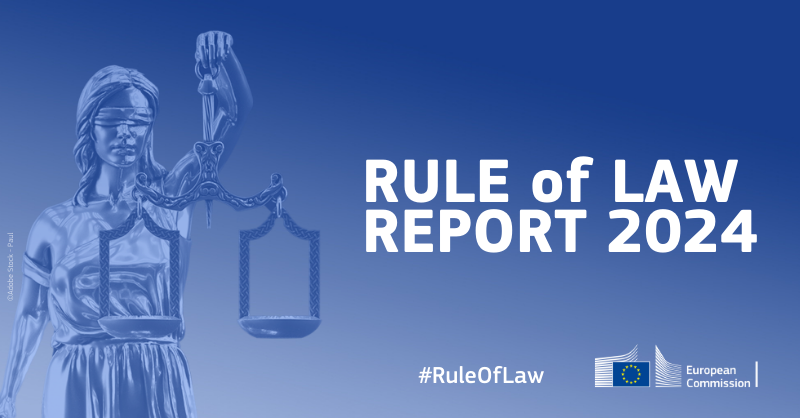
The European Rule of Law Mechanism defines the dialogue process on the rule of law between the European Commission, the Council of Europe, and the European Parliament, together with the Member States, national parliaments, civil society, and other stakeholders, conducted throughout the year. The Rule of Law Report is both a result and the basis of the dialogue, as the dialogue pari passu systematically and objectively examines the rule of law situation in all Member States of the European Union. The 2024 Report distinguishes itself by including, for the first time, an assessment of the situation regarding the rule of law in the most advanced candidate countries, including Serbia.
The main goal of this Mechanism and its Report is to encourage cooperation between all EU institutions so that each contributes to strengthening the rule of law in accordance with its competencies. This goal certainly also reflects the interests of the European Parliament and the Council of the EU concerning this matter while the Commission uses the Mechanism to invite national parliaments and authorities to open a debate on the Report, as well as encourage other stakeholders, both at the national and EU level, to join the dialogue.
As the European Commission itself has announced, the EU Member States and the EU as a whole are much better prepared to detect, prevent, and resolve challenges in this field this year than they were when the first Rule of Law Report was published in 2020. Strengthening the rule of law also strengthens European democracies and mutual trust within the EU, contributes to the good functioning of the single market, which also benefits the business environment that promotes competitiveness and sustainable growth. Identifying challenges as soon as possible, with the mutual support of the Commission, other Member States, and stakeholders, including the Council of Europe and the Venice Commission, helps Member States and, starting this year, some candidate countries, find solutions for protecting the rule of law by using the experiences of others.
From this year, the Rule of Law Report also monitors the development in four areas from the domain of the rule of law in Serbia, as one of the candidate countries that has, according to objective criteria, progressed the most in the accession process, in particular in terms of the extent of preparedness in the field of the rule of law. The aim is to encourage Serbia's implementation of reforms and preparations so that, as a future Member State, it would maintain the achieved standards and, in particular, improve their implementation and also go further – since reforms with respect to the rule of law, as demonstrated by this Report, do not end once EU membership is achieved. The Report itself has been compiled based on the meetings of the Subcommittee on Justice, Freedom and Security, special missions, and permanent dialogues on individual areas (judiciary, fight against corruption, media) with the Government of Serbia. In particular, for the purposes of compilation of this year's Report, the European Commission talked to all stakeholders within our country, the civil society, the National Convention, media associations, and political parties. The purpose of this document is to review the situation in Serbia and compare it to other countries, primarily to learn from the experiences of others. In fact, the Report's particular value lies in its presentation of concrete solutions and examples of how other countries have been resolving certain matters that we are still facing or will face in the future.
The Rule of Law Report provides a review for all Member States and observed candidate countries, including Serbia, in four pillars, namely: national judicial system, fight against corruption, pluralism and media freedom, and other institutional systems of checks and balances.
The Rule of Law Report itself does not contain any recommendations on the further reform process in this field for candidate countries, which is the biggest difference with respect to EU Member States. The European Commission will provide its recommendations in its regular Annual Progress Report for 2024, which is expected in the autumn.








